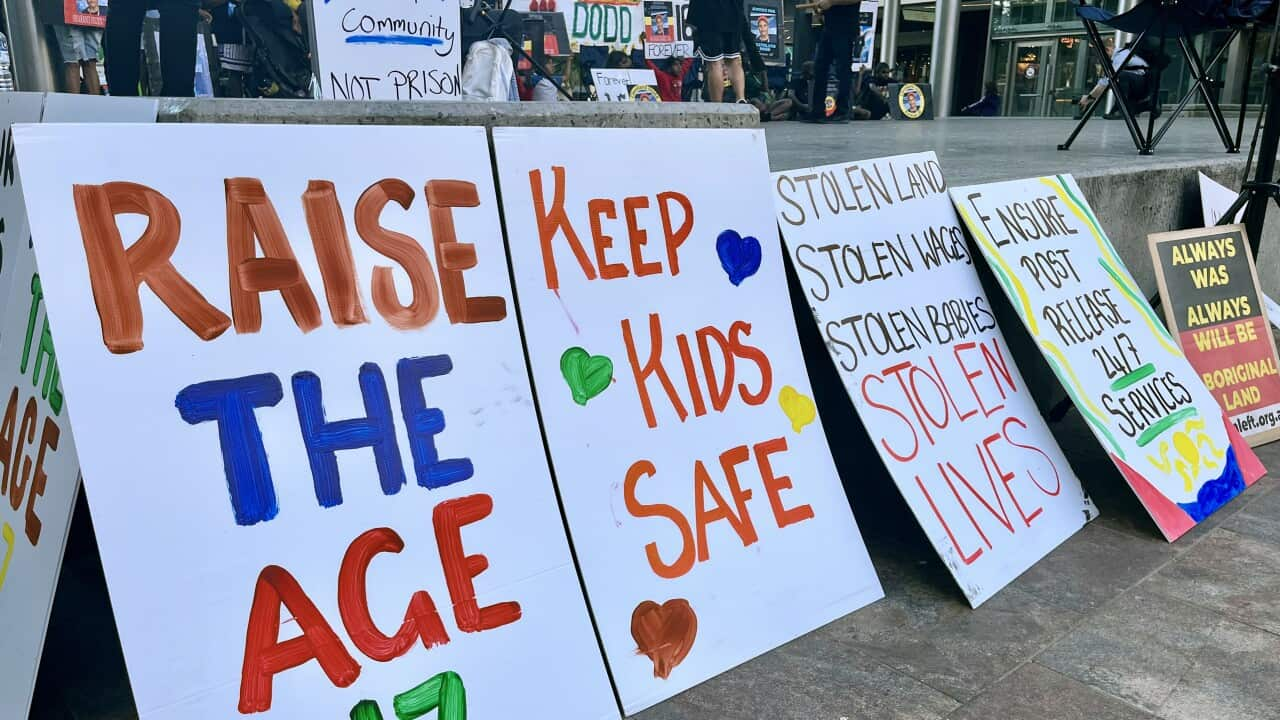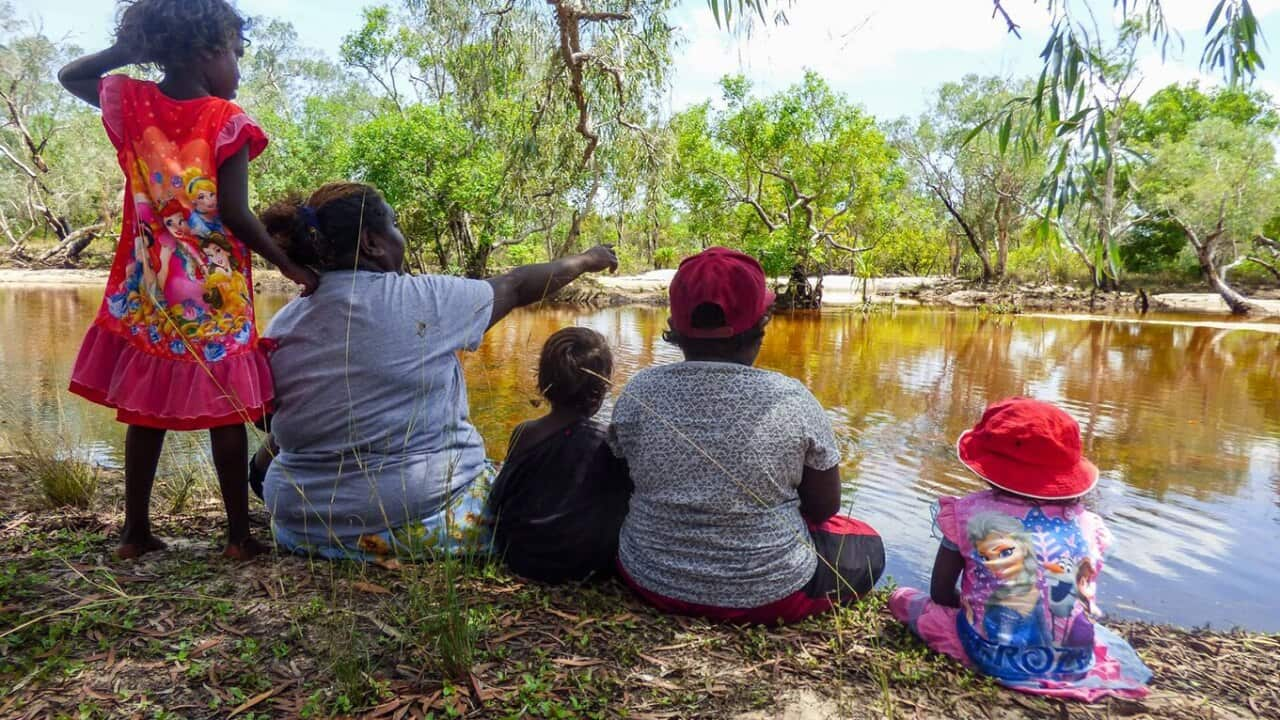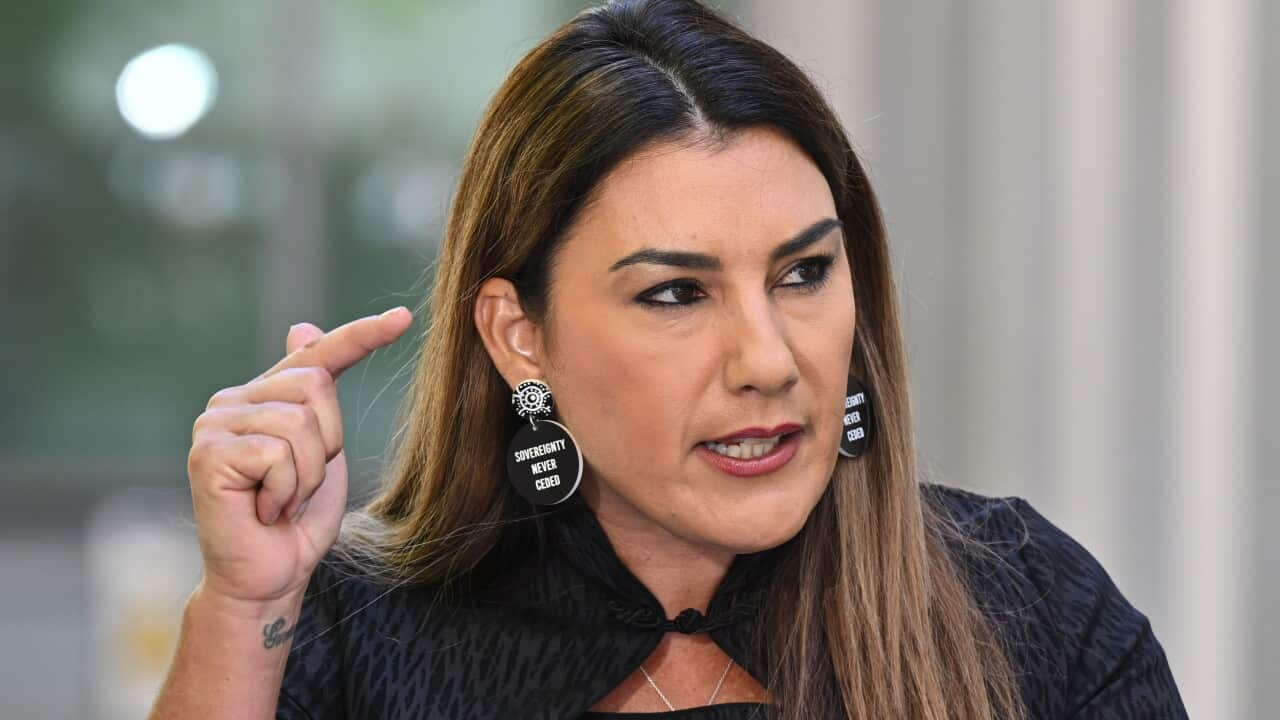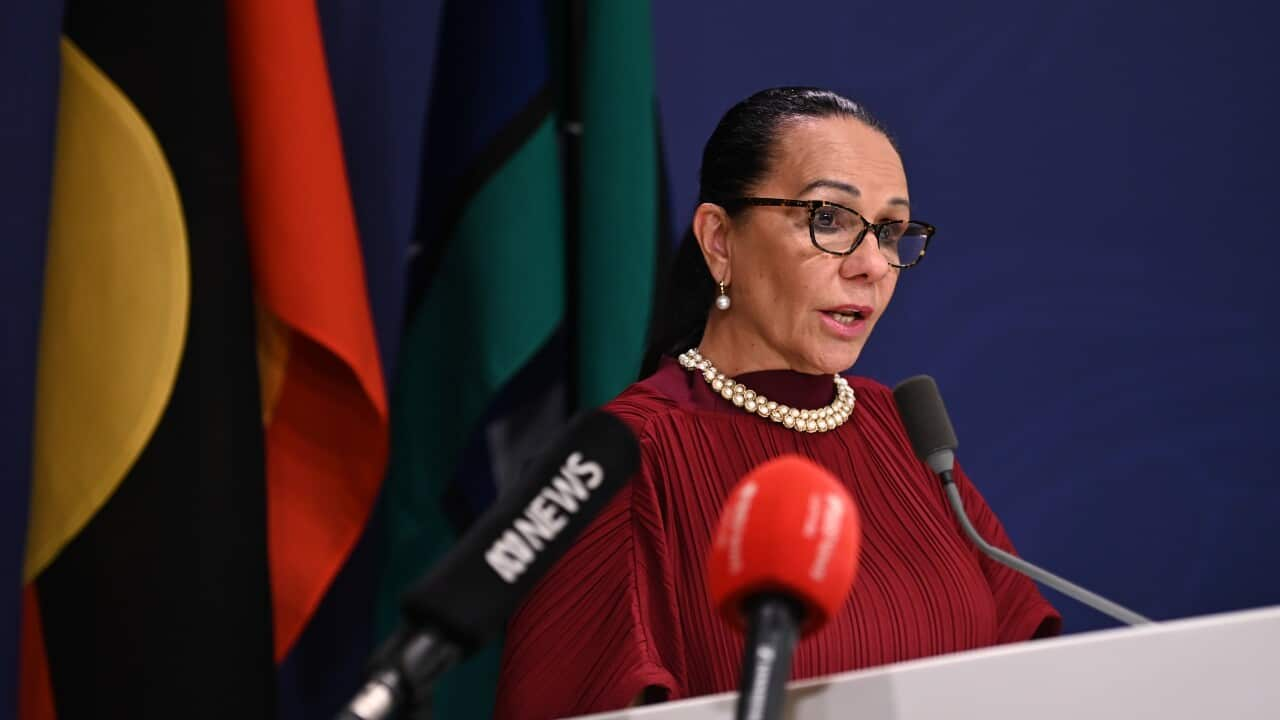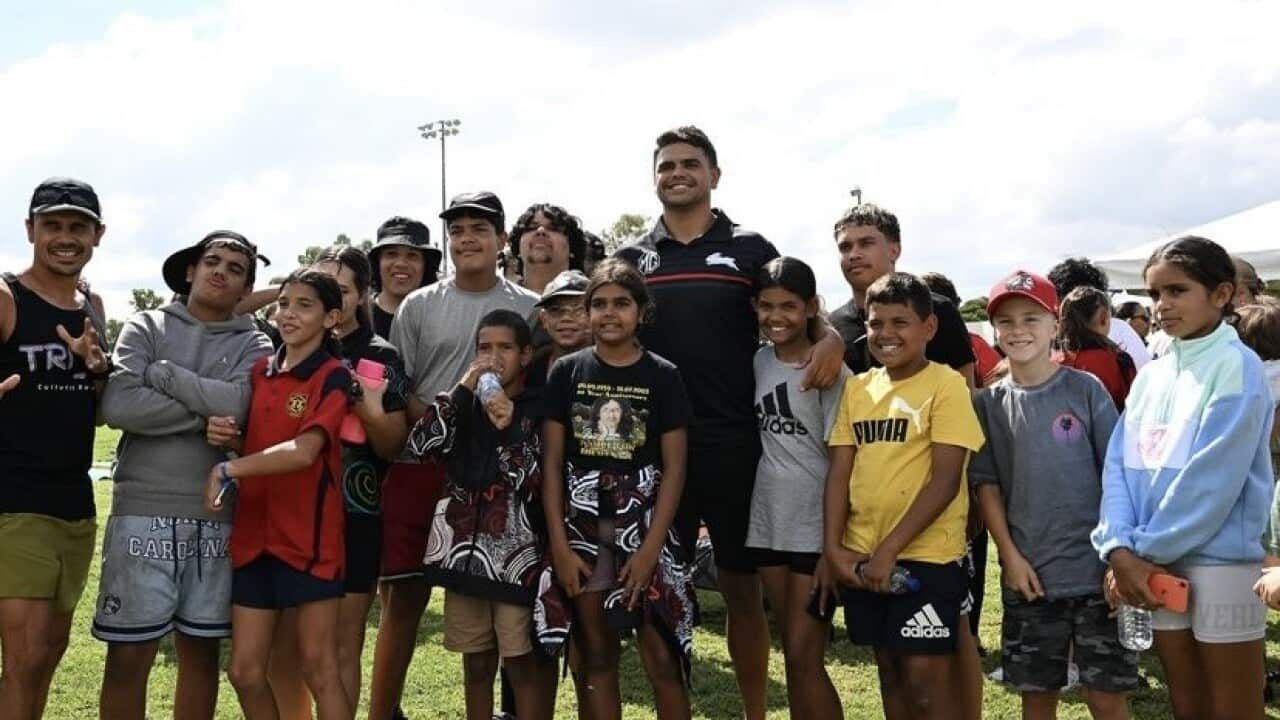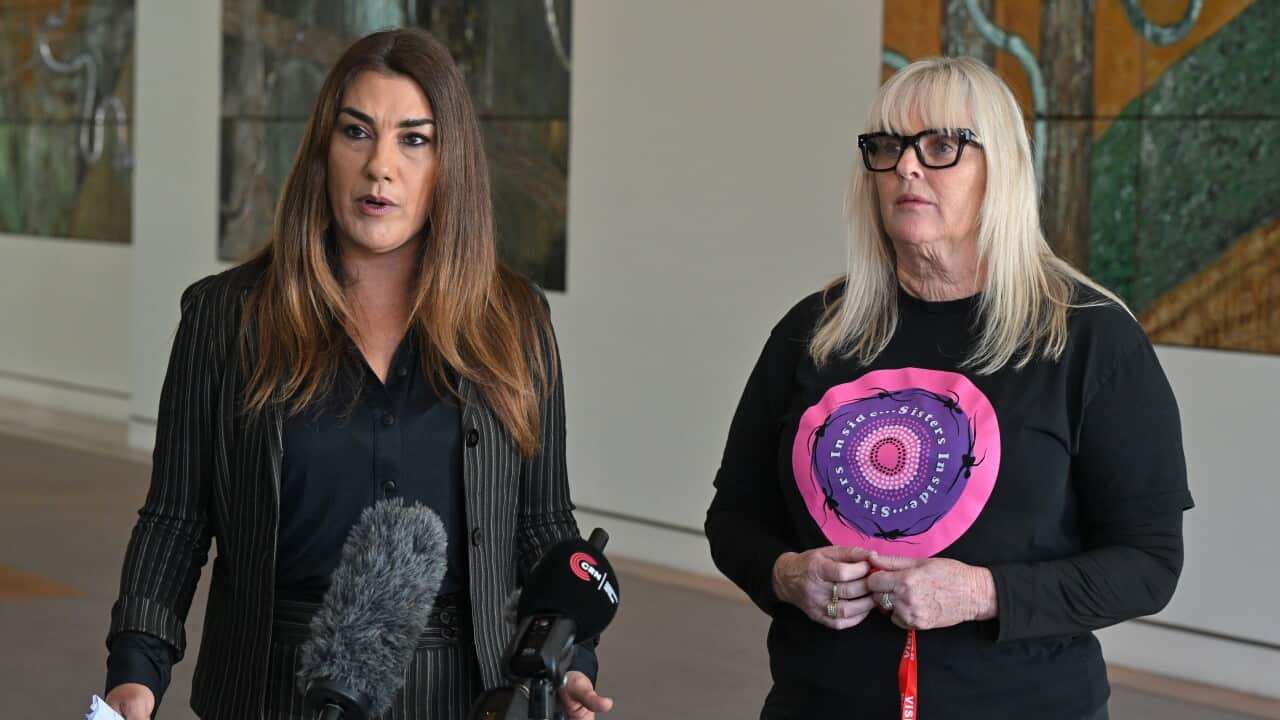Warning: This article discusses domestic violence and incarceration.
The house where I meet Jenny Holmes is warm, colourful and inviting.
Baby toys and children's books fill up empty space and each room in the house is named after a different flower.
I imagine it is much different to a jail cell.

Mothers and their children exiting the prison system gain access to safe accommodation through the program.
All of the women staying at the From Now house are First Nations, from the Greater Sydney area, and many are mothers or mothers-to-be.
Two women in their 20s - the same age as I am - are sitting in the communal lounge room. They both greet me with a smile.
Emma* has been in and out of jail since she was eighteen.
Imogen*, who is in her mid 20s, was incarcerated for the first time this year.
Ms Holmes says the program is an opportunity for young Blak women like Emma and Imogen, who are disproportionately affected by the criminal justice and police system, to create a better life for themselves.
"It's a chance for Blak women to break that intergenerational trauma. It's breaking that cycle, it's stopping the recidivism, and it's also working to keep babies in care of mum, instead of being taken by the Department of Justice (DCJ)," she says.
"The program is structured so the women have routine.
"Each day we do something different ... Tuesday is a life skills program where they're doing cooking classes."
The house has Aunty Dixie Link-Gordon as an Elder in Residence and the women have the opportunity to do cultural activities each week.
"The women are able to get back in touch with culture, get back in touch with who they are and with their families," Ms Holmes said.
'I'm looking forward to the future': How the program impacts Blak women
For the women who participate in the program, the impacts are far reaching; not only changing the course of their own lives - but the lives of generations to come.
Imogen, who has just had a baby girl, says her life would be a lot different, if she hadn't participated in the program.
"I'm completely sober and I don't have any issues with DCJ. Having the opportunity to spend time [with my baby] instead of being locked up, it will affect [my baby] for the rest of her life," she says.
"Having access to parenting classes and having support, which is something that I wouldn't have received, changed our lives ... I'm not messing up or getting into trouble."
With DCJ closing the case to take Imogen's baby away from her because she now has access to safe and stable living conditions, Imogen says she's excited for what the future holds for her and her baby girl.
"I've been given this opportunity to try and create a better life for myself and things are a lot more positive," she says.
"I've just had my baby and I'm looking forward to the future."
Emma also says her life would be a lot different without the support from From Now.
"I think it's a really good program. If I wasn't here, I would 100 per cent be back to jail," she says.
"All the support that we get ... I think it's a really good way of re-engaging yourself with the community.
"This is a good way of starting to live normally again and getting away from any bad people that you were around and just starting fresh."
Ms Holmes, who has lived experience with the police and prison systems, knows all too well how women exiting the prison system can thrive if given the opportunity to do so.
"The women here are really starting to empower themselves and take control of what is rightfully theirs," she says.
"This is an opportunity that women can have to just sit and be, be allowed to be who they are without fear of police knocking on the door or DCJ coming along to take their baby."
A desperate need for funding
From Now is currently philanthropically funded by the Judith Neilson Foundation however the Women’s and Girls’ Emergency Centre are seeking further funding to expand the program once funding for the pilot ends in June.
"It's scary to think about ... soon, we will have a full house of women and children and we're only funded until next year," she says.
"We desperately need funding.
When you talk about keeping a pregnant woman in jail, the cost has to be astronomical as opposed to a diversion program.
Ms Holmes says that it's much more logical for the government to fund programs such as From Now as opposed to prisons.
"To keep a woman in a home as opposed to a jail, there's got to be so much more value financially in keeping them out of prison, especially pregnant women," Ms Holmes says.
"Prison is not the place for pregnant women.
"We don't want babies being in that system."
Emma says that without programs like this, it's easy for women to get stuck in vicious cycles.
"In jail, you become addicted to that situation, it's all you know," she says.
"This is breaking that cycle of going back to jail ...
"I'm learning so many things ... how to be independent, how to live. I think that's really, really important.
"If you're stuck in that cycle, you're just stuck, you can never get out.
"If there's not opportunities like this you will never get out."
*Names in this article have been changed to protect anonymity.

